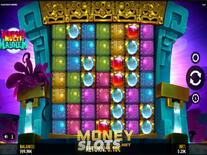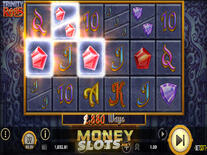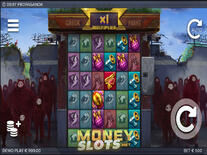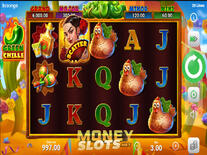

Adaptive Algorithms In Slot Machines
Originally slot machines were designed for a certain percentage of returns (payout) to the gambler. It was determined depending on the number of symbols on the barrel of the machine and a table of payments. Initially, in the era of mechanical, and then and electro-mechanical slot machines this percentage remained constant in each concrete model of the slot machine. This percentage was not very high and on average amounted from 30% to 60%. But soon owners of casinos and manufacturers of slot machines drew attention to the fact that the higher the percentage of payout to the gambler was installed on the machine, the more popular slot machine was among gamblers.
In the era of video slots, when the slot machine is controlled by a computer, and respectively the speed of the game is significantly higher, percentage of payout to the gambler in many varieties of slot machines has already exceeded 90%. Moreover, the computer enables before each new spin to change the layout of symbols on the slot machine, dynamic adjusting the percentage of payout in different periods of the game.
How this information may be useful to the gambler in slot machines? Everything is very simple. The fact is that, because of the strong competition between the producers of the game software, some of the slots in certain periods of the game give a very high percentage of payout, sometimes slot machine temporarily even works at a loss to itself, showing the percentage of payout of more than 100%. Naturally manufacturers of slot machines are doing it for the sole purpose of infecting the gambler’s passion, and to make him lose self-control. Giving the gambler a certain amount, the computer, managing the slot machine, lowers the percentage of payout, and the gambler faces more difficulties. Accustomed to being lucky, a gambler can not put up with the loss of winning money, wants to win it back, and makes new deposits.
However, no computer is able to beat the man. An experienced gambler understands perfectly well that the main thing is to stop in time, especially, if you play in slot machines. As soon as the period of luck is over, and the machine stops often giving good winning combinations, an experienced gambler will not raise bets. The experienced gambler will make a cash-out, preferring a real win to vague prospects.
You might be also be interested in these articles
-
News
- Betsoft Gaming Invites Players to Hit the Halloween Jackpot in a Rags to Witches Adventure
- Yggdrasil and Bang Bang Games Are Ready for Halloween with Jekyllz Wild Ultranudge
- Play’n GO Slays with Latest IP Title, Dio – Killing the Dragon
- Pragmatic Play Revolutionises a Popular Title in John Hunter and the Book of Tut Respin™
- Betsoft Gaming Releases Captain’s Quest Treasure Island
-
Articles
-
Latest Slots Reviews














































